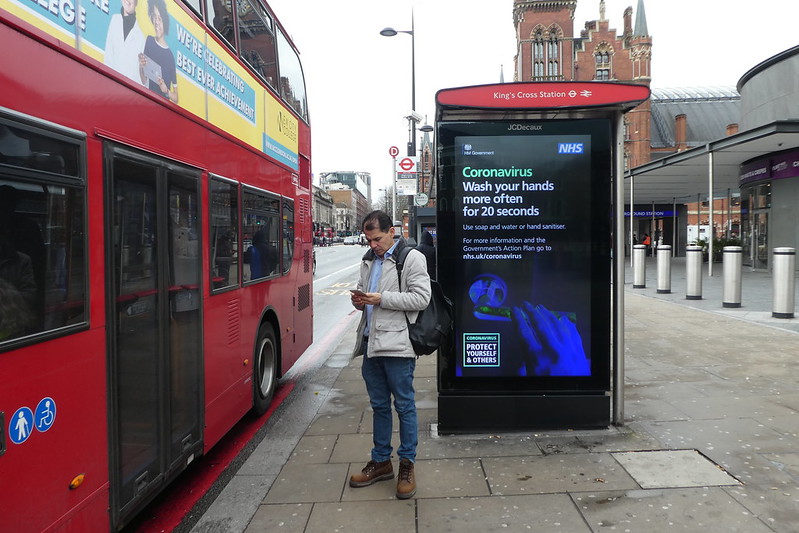
Photo: Duncan C
Coronavirus hits public transport numbers
16 March 2020
by Christopher Carey
Transport for London (TfL) will seek government support after a fall in passenger numbers over the past week as a result of the Coronavirus (COVID-19) pandemic.
With an increasing amount of people now working from home, the transit operator reported that passenger numbers on the underground were down by 19 percent, while bus use has fallen by 10 percent when compared to the same time last year.
It expects a £500-million reduction in fare income as a result of the drop. This also coincides with mayor Sadiq Khan’s announcement that his controversial fare-freeze–which saw single journey ticket prices remain static for the past four years–will end next year.
“Given the nature of the situation, we will be looking to the government to provide appropriate financial support,” said Simon Kilonback, TfL’s Chief Finance Officer. “We continue to follow and communicate Public Health England’s advice, including that there is no specific risk on public transport.”
Last week TfL launched an ‘enhanced cleaning regime’ on its underground and bus network, which includes a new longer-lasting cleaning agent that provides antiviral protection for up to 30 days.
Lilli Matson, Director of Health, Safety and the Environment at TfL said: “A lot of cleaning goes on when stations are closed or trains are out of service, so to provide additional reassurance teams will be cleaning areas that are frequently touched throughout the day, in addition to the enhanced cleaning regime that all bus garages will be carrying out.”
The drop in passenger numbers in London follows a global trend, with New York’s Metropolitan Transportation Authority announcing last Wednesday that ridership on subways and buses has fallen by nearly 20 percent and 15 percent respectively since the beginning of March.
It has however seen a dramatic rise in bike trips, with a 55 percent increase measured in some areas.
In San Francisco, Bay Area Rapid Transit says it is losing up to $500,000 a day in fare revenues as a result of falling numbers.
Istanbul has had a 48 percent reduction in public transport use in the past week, while in Sydney, Australia, commuters have been urged by the state government’s transport minister, Andrew Constance, to avoid travelling on public transport during the peak-hour rush help slow the spread of the virus in New South Wales.
Some countries have taken more drastic measures, with Slovenia banning all public transport across the country from today.
France will progressively reduce long-distance train, bus and plane travel over the coming days to limit the spread of the virus, said the ecology minister, Elisabeth Borne.
The country–which has already shut cafés, restaurants, schools and universities, and urged people to limit their movement–will now seek to limit long-distance travel to what is “strictly necessary”.














